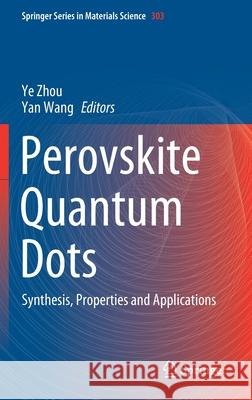Perovskite Quantum Dots: Synthesis, Properties and Applications » książka
topmenu
Perovskite Quantum Dots: Synthesis, Properties and Applications
ISBN-13: 9789811566363 / Angielski / Twarda / 2020 / 374 str.
Perovskite Quantum Dots: Synthesis, Properties and Applications
ISBN-13: 9789811566363 / Angielski / Twarda / 2020 / 374 str.
cena 644,07
(netto: 613,40 VAT: 5%)
Najniższa cena z 30 dni: 616,85
(netto: 613,40 VAT: 5%)
Najniższa cena z 30 dni: 616,85
Termin realizacji zamówienia:
ok. 16-18 dni roboczych.
ok. 16-18 dni roboczych.
Darmowa dostawa!
Kategorie:
Kategorie BISAC:
Wydawca:
Springer
Język:
Angielski
ISBN-13:
9789811566363
Rok wydania:
2020
Wydanie:
2020
Ilość stron:
374
Waga:
0.72 kg
Wymiary:
23.39 x 15.6 x 2.24
Oprawa:
Twarda
Wolumenów:
01
Dodatkowe informacje:
Wydanie ilustrowane











